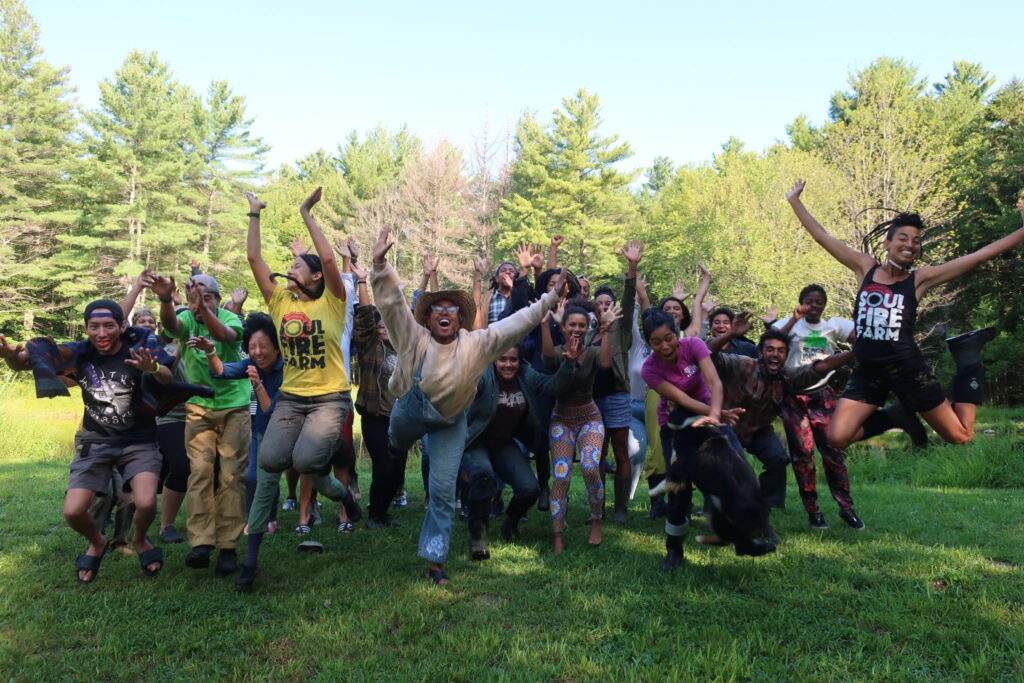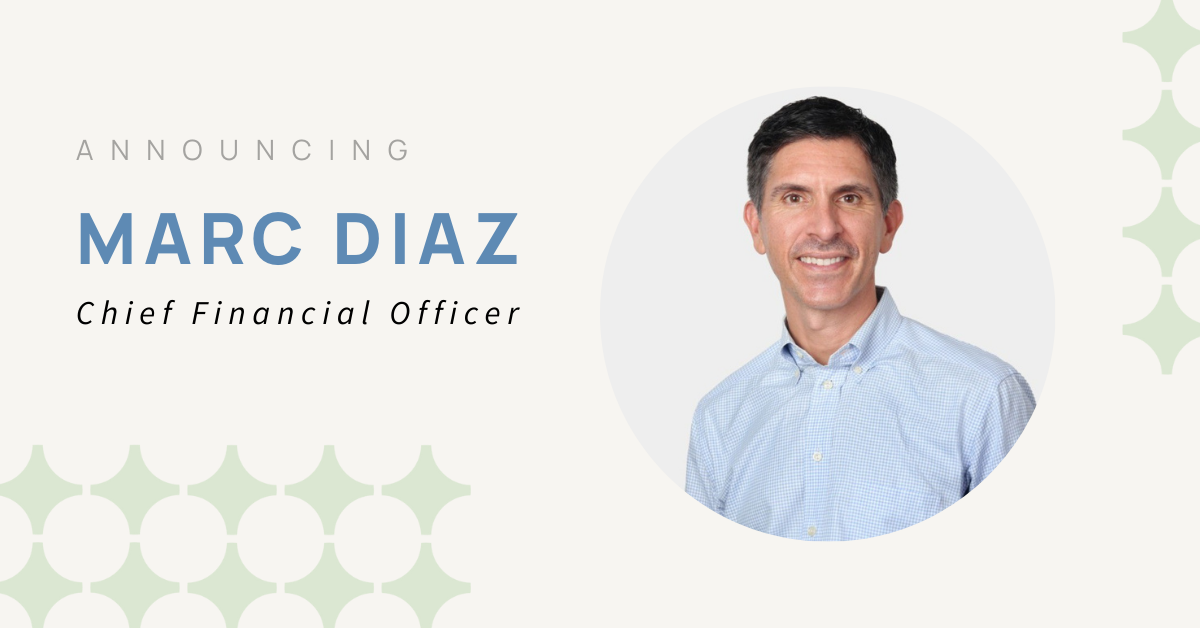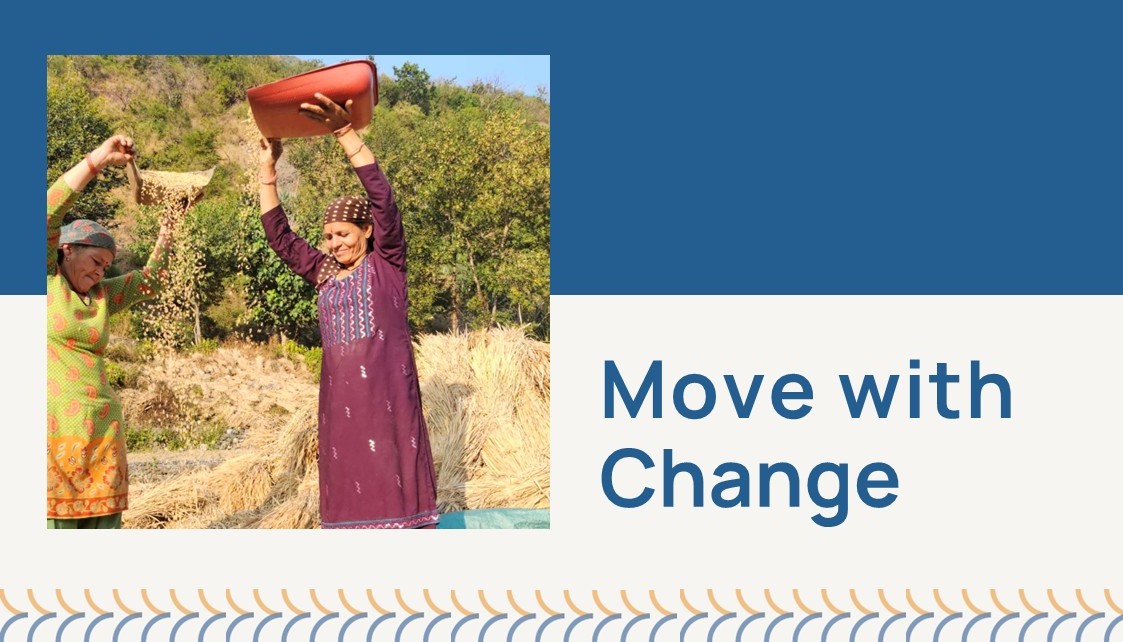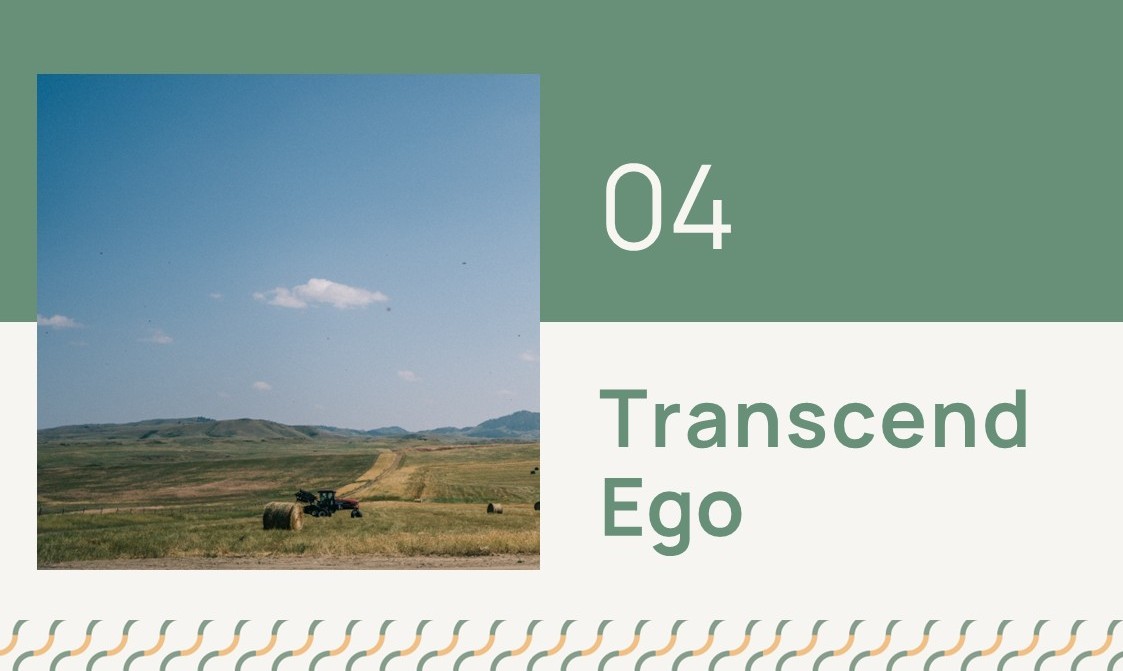When farmers who are Black, Indigenous and people of color come to Soul Fire Farm in Grafton, New York, for a weeklong farmer training program, they engage in rituals to heal their relationships to the land. After sowing seeds or weeding a bed of carrots, they gather in a circle to create a timeline of the racist events their peoples have endured in relationship to the land. They may have ancestors who barely survived as sharecroppers, or they may have been exposed to pesticides as children while their migrant worker parents tended the fields. As night appears, they create a bonfire and burn the timelines.
“We have a jazz funeral for the history of racist events, to release the trauma and baggage of the past,” says Naima Penniman, Soul Fire’s program director, “and then we create a new timeline into the future, forecasting what we want to see happen and how we want to be part of writing that story.” It’s such a powerful experience that one participant called the workshop “a picture of what’s possible in a healed world.”
It’s also part of Soul Fire’s larger mission: to end racism and injustice in the food system. The 80-acre farm near Albany, New York, embraces this mission by using—and teaching—regenerative Afro-indigenous farming methods, empowering BIPOC farmers, addressing the lack of access to fresh food in impoverished neighborhoods, and advocating for land reparations. “A really important part of our programming,” says Naima, “is shifting the relationship that we and our communities have had to the land from one of stolen land and exploited labor to one of agency, power, and self-determination.”
Soul Fire has been able to do this work with the help of more than $350,000 in grants from RSF’s donor advised funds (DAFs). “We were inspired by Soul Fire’s food sovereignty programs,” says Emma Noto, program associate with RSF’s philanthropic services, “and we’re passionate about creating transformative change and more equitable food systems.”
Confronting food apartheid
Leah Penniman and Jonah Vitale-Wolff, a Black-Jewish couple, founded Soul Fire after moving from Massachusetts to the South End of Albany so their children could attend an alternative inner-city school with racially diverse young families. When they arrived, however, they struggled to find fresh food in their new neighborhood. The couple had worked on farms for many years, so their neighbors asked them to create a “farm for the people.”
They purchased 80 acres of rocky clay soil on a mountainside in 2006 and spent four years restoring the land through regenerative practices such as cover cropping and grazing animals. Soul Fire Farm opened in fall 2010, and the founders started a doorstep vegetable and egg delivery program for low-income community members living in what Leah calls “food apartheid,” with little access to fresh, healthful food.
They also continued to learn traditional and spiritual methods from farmers in Mexico, Ghana, Haiti, and Brazil. Naima recalls visiting the queen mothers of Odumase-Krobo in Ghana, West Africa, with her sister Leah. One queen mother asked Leah, “Is it true that in the United States someone will plant a seed and not sing and dance over it, or even say thank you to the Earth, and expect the seed to grow?” Leah nodded. The woman replied, “That’s why you’re all sick. You must recognize the Earth as a relative.”
Repairing harm and reclaiming land
As Soul Fire grew, it became a powerful voice in the national movement for BIPOC food sovereignty. The founders incorporated the enterprise as a 501(c)3 with a deep mission: to repair the injustices that BIPOC people have faced in relation to the land, including the theft of land from Native Americans, the enslavement of Black people and the poor, unsafe working conditions that many Latinx migrant workers continue to face.
Soul Fire also sought land reparations so that farmers who have been dispossessed through generations of USDA discrimination, land theft and racial terror could reclaim their deep connection to the land. In 1910, Black farmers owned 15% of U.S. farmland; today, they own less than 2%. To remedy this, Soul Fire incubated the Northeast Farmers of Color Land Trust, creating a fellowship of BIPOC farmers and encouraging land redistribution through a reparations map designed to pair farmers in need with people who want to donate land or resources.
Four years after its founding, Soul Fire started offering daylong and weeklong training programs in Afro-Indigenous farming methods and a weeklong program for BIPOC teens. When the pandemic hit and people couldn’t gather, Soul Fire posted a “Liberation on Land” series on YouTube to teach its growing practices. The farm also helped 40 families in the Albany area grow some of their own food in backyard gardens.

Supporting Soul Fire’s mission through RSF’s Donor Advised Funds
An RSF DAF client recommended a grant to Soul Fire in 2016. After researching the farm, RSF encouraged other clients to give too.
That resulted in six grants, including one for $150,000 to help Soul Fire build new facilities, a $100,000 grant to support programming and a $20,000 grant earmarked for the Northeast Farmers of Color Land Trust’s work to advance permanent, secure land tenure for BIPOC farmers.
“Without the help of RSF, we wouldn’t have such a robust farmer training program and wouldn’t be able to build the infrastructure we needed for those programs,” says Leah.
Noto says there’s plenty of continued support for repairing food injustice: “RSF clients have shown a deep passion for systemic change and the larger trend of supporting Black and Brown farmers and land sovereignty.”
Shifting power to communities
For Soul Fire, this support has gone a long way. The grants have enabled the enterprise to train hundreds of aspiring Black and Brown farmers each year, and currently are helping Soul Fire Farm construct a program center, classroom, and guest lodge.
“As one of the few Black-led training centers, we like to create a safe and joyful container in which we can work on healing relationships and the land,” says Naima. “We’re gathered here to tell dignified stories from our families, what our grandmothers taught us in their gardens. We pull those memories and share them with each other. Then we create new ones together.”
RSF hopes to fuel similar success stories and deploy more capital through community decision making with its recently expanded DAF program. Donors can now opt for a community-led funding model, which puts grant decisions in the hands of community leaders instead of donors.
“Philanthropic funds at RSF are really well suited for empowering communities and supporting systemic change,” says Noto, “and we want to help clients activate their money for change.”


